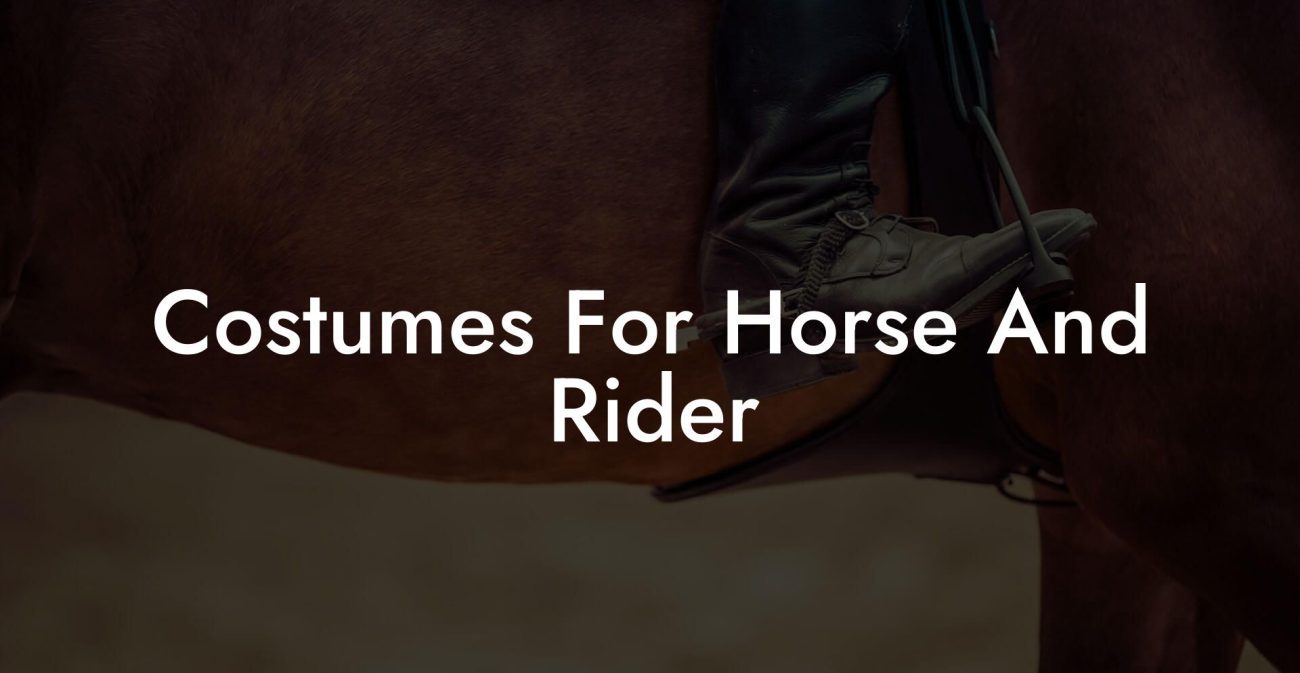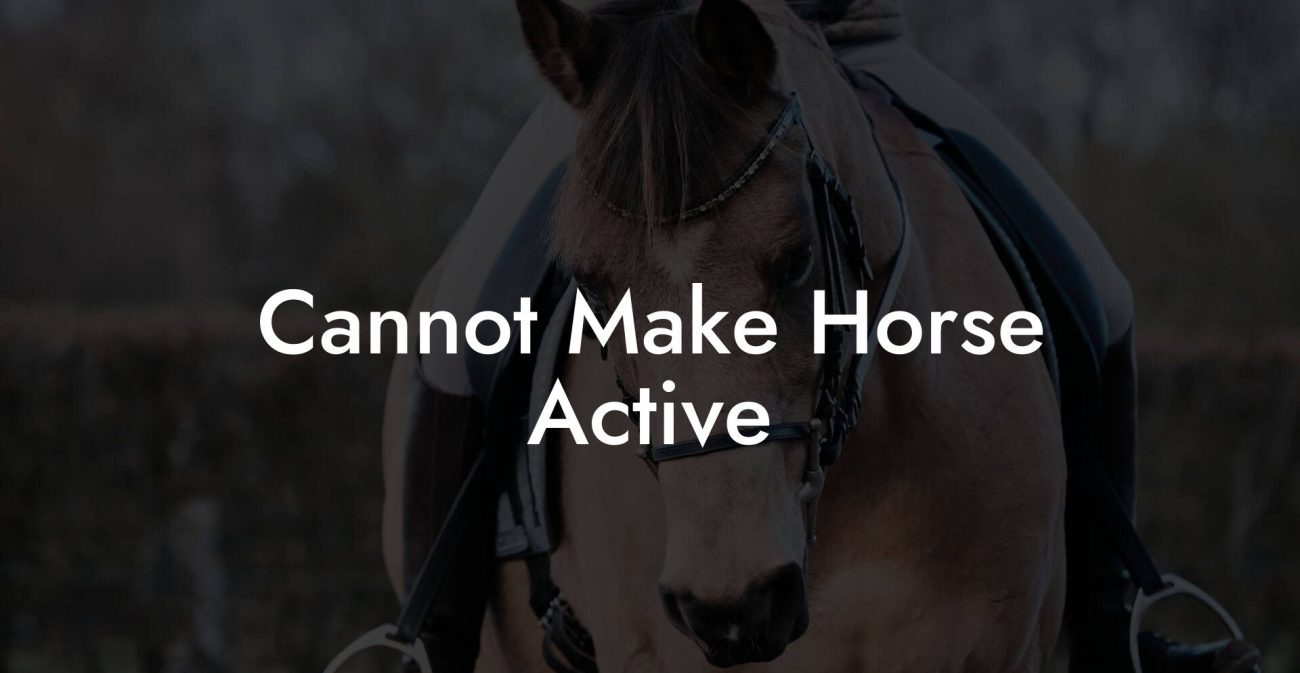When you’re juggling the demands of modern horse care while keeping one eye on the latest equine health trends, figuring out how much dexamethasone to give your horse can feel like decoding an ancient hieroglyph. This isn’t your everyday apple pie recipe, this is next-level care for your four-legged bestie, mixing science with a dash of modern equine wisdom. Get ready to dive into a comprehensive guide that talks turkey (or hay, in this case) about dexamethasone dosing, its benefits, risks, and everything in between!
Quick Links to Useful Sections
- Understanding Dexamethasone: A Key Player in Equine Medicine
- How Dexamethasone Works Its Magic in Horses
- Why Use Dexamethasone for Horses? Key Situations and Conditions
- Decoding the Right Dosage: Factors to Consider
- 1. Horse Weight and Body Condition
- 2. Severity of the Condition
- 3. Duration of Treatment
- 4. Route of Administration
- General Dosing Guidelines for Dexamethasone in Horses
- Administration Techniques: Getting It Right
- Intramuscular (IM) Injections
- Intravenous (IV) Administration
- Oral Administration
- Balancing Benefits and Risks: Potential Side Effects of Dexamethasone
- Holistic and Complementary Considerations in Equine Health Management
- Balanced nutrition
- Regular Exercise and Mobility
- Stress Management
- Case Studies: Real-Life Scenarios in Equine Dexamethasone Use
- Case Study 1: A Racehorse’s Recovery After a Severe Inflammatory Episode
- Case Study 2: Managing Allergic Reactions in a Leisurely Companion Horse
- Case Study 3: Post-Surgical Recovery in a Veteran Equine
- Step-by-Step Guide to Calculating Dexamethasone Dosage
- Step 1: Weigh Your Horse
- Step 2: Determine the Recommended Dosage Range
- Step 3: Do the Math
- Step 4: Adjust for Administration Route and Frequency
- Step 5: Monitor and Modify
- Resources and Community Support: Your Next Steps
- Veterinary Consultation
- Online Forums and Social Media Groups
- Equine Health Websites and Journals
- Workshops and Webinars
- Your Journey to Confident Equine Care
- Frequently Asked Questions About Dexamethasone in Horses
- Your Equine Care Adventure Awaits
Understanding Dexamethasone: A Key Player in Equine Medicine
Dexamethasone is a potent synthetic corticosteroid; think of it as the superhero in your horse’s medicine cabinet. It’s primarily used for its anti-inflammatory and immunosuppressive properties, which can be invaluable when your horse is battling inflammatory conditions, allergies, or even severe infections. In essence, dexamethasone steps in to reduce inflammation and calm down an overactive immune response, saving the day when your equine companion’s body is sending all kinds of stress signals.
But before you start googling “dexamethasone dosage for horses” at 3 AM, it’s important to appreciate that this medication, like any superhero, comes with its own set of responsibilities (and side effects). It’s not a magic bullet, and incorrect dosing can lead to complications. That's why this guide is jam-packed with practical, down-to-earth advice to help you navigate the maze of dosages and administration techniques.
Horses come in a variety of sizes and live wildly different lifestyles, from the nimble pleasure riding horses grazing in a local arena to the high-performance athletes competing on the track. This means that dosing isn’t one-size-fits-all; it’s as much an art as it is a science. Throughout this guide, we’ll explore everything from the basics of how dexamethasone works in equine medicine to the nitty-gritty details of calculating the right dosage for your specific horse.
How Dexamethasone Works Its Magic in Horses
At its core, dexamethasone works by mimicking the effects of cortisol, a steroid hormone that your horse’s body naturally produces to manage stress and inflammation. When administered, it binds to specific receptors, shifting the body’s focus from inflammation to healing. This is particularly crucial in situations where inflammation could spiral out of control, such as in severe allergic reactions, respiratory distress, or even in cases of colic.
On a molecular level, dexamethasone inhibits the production of inflammatory mediators like prostaglandins and cytokines. In simpler terms, it tells your horse’s body to calm down, which can be a lifesaver in acute scenarios. However, much like any powerful tool, it needs to be used wisely. Overuse can lead to immunosuppression, making your horse more susceptible to infections, among other side effects.
Equine vets often compare dexamethasone to a double-edged sword, it has the power to turn the tide on inflammation, but improper dosing or prolonged use can lead to complications such as laminitis or metabolic disturbances. That’s why understanding not just how it works but also how much to give is absolutely critical.
Why Use Dexamethasone for Horses? Key Situations and Conditions
Dexamethasone isn’t just a fancy name in the equine world, it plays a real role in addressing some serious health issues. Here’s where it commonly comes into the picture:
- Inflammatory Conditions: Whether your horse is dealing with arthritis, tendon injuries, or joint inflammation, dexamethasone can help reduce swelling and pain.
- Severe Allergies and Hypersensitivities: In cases where horses suffer from severe allergic reactions, dexamethasone may calm an overzealous immune response.
- Acute Respiratory Distress: Certain respiratory conditions that cause airway inflammation can benefit from the anti-inflammatory effects of dexamethasone.
- Colic Management: Although controversial in some circles, under veterinary supervision, dexamethasone might be used as an adjunct treatment in selected cases of colic.
- Surgical Recovery: Post-operative swelling and inflammation can be controlled with a carefully calibrated dose.
It’s vital to remember that the use of dexamethasone is always tailored to the individual horse and situation. What works for a seasoned racehorse aggravated by intense workouts might not be appropriate for an older, retired pasture-dweller. That’s why the conversation about "how much dexamethasone" is so crucial, it’s all about customized care.
Decoding the Right Dosage: Factors to Consider
This is where the rubber meets the road. Determining the proper dose of dexamethasone for your horse isn’t a matter of following a generic rule of thumb, it depends on several key factors:
1. Horse Weight and Body Condition
Just as you wouldn’t dress a racing thoroughbred in the same size outfit as a draft horse, you can’t administer the same dose of dexamethasone to a 400-kg pony as you would to a 600-kg performance horse. Vets typically calculate the dosage based on the horse’s weight (often in mg per kilogram). A detailed, weight-based calculation ensures that you don’t underdose (which might be ineffective) or overdose (which can be dangerous).
2. Severity of the Condition
The intensity of your horse’s condition plays a major role in determining dosage. For mild to moderate inflammation, a lower dose may suffice. However, in severe cases, such as acute allergic reactions or post-surgical swelling, a higher or more frequent dosing regimen might be necessary. This is not a DIY situation; a veterinarian should assess exactly how aggressive the treatment needs to be.
3. Duration of Treatment
Dexamethasone is usually administered over a short period to control acute flare-ups. Long-term or high-dose usage increases the risk of side effects like laminitis, gastrointestinal ulcers, or a suppressed immune system. Knowing how long your horse should stay on this medication is as crucial as knowing the dose itself.
4. Route of Administration
The way in which dexamethasone is administered, whether by injection or orally, can influence its absorption and efficacy. Intramuscular injections, for example, may have a quicker onset of action compared to oral dosing. Each route has its own recommended dosages, and your vet’s expertise is key to choosing the right method for your horse’s situation.
All these factors underscore the importance of a tailored approach to dosing dexamethasone. Using a one-size-fits-all method in horse care can quickly backfire. So, let’s break down some general guidelines while emphasizing the need for professional oversight.
General Dosing Guidelines for Dexamethasone in Horses
While the specifics of each case vary, there are general dosing parameters that many vets use as a starting point. These guidelines are meant to serve as a reference, not a prescription you can apply without veterinary input:
- Mild Conditions: For minor inflammatory issues, dexamethasone doses might range from 0.05 to 0.1 mg/kg, administered once daily for a brief period.
- Moderate to Severe Conditions: In scenarios where inflammation is more pronounced, doses may escalate to 0.1 to 0.2 mg/kg. The treatment might be administered more frequently, perhaps once or twice daily, depending on the clinical picture.
- Short-Term vs. Long-Term Use: Short-term treatments (a few days to a week) are commonly used during acute flare-ups. For long-term management, your vet might recommend tapering the dose gradually to minimize potential side effects.
It’s crucial to highlight that these guidelines serve merely as a starting point. The actual dose might need tweaking based on the horse’s response. Monitoring and adjusting the treatment plan is where the clinical art of veterinary care really shines, ensuring your horse gets the right amount of dexamethasone, no more, no less.
Remember, every horse is unique. A thorough veterinary evaluation is the best way to ensure safety and effectiveness. Never attempt to self-prescribe for your equine friend, professional guidance is key.
Administration Techniques: Getting It Right
Administering dexamethasone properly is as important as getting the dosage right in the first place. Here’s a look at some common administration methods used in equine care:
Intramuscular (IM) Injections
IM injections are one of the most common routes for dexamethasone in horses. This method allows for rapid absorption and is especially useful during emergency situations. With IM injections, precision in the injection site is key to avoid complications such as muscle damage or abscess formation.
Intravenous (IV) Administration
In critical care settings where time is of the essence, intravenous administration is sometimes necessary. IV dexamethasone provides a rapid systemic effect, which is crucial for horses experiencing severe inflammatory responses or shock. However, IV administration requires a high level of veterinary proficiency and close monitoring.
Oral Administration
Although less common, oral administration of dexamethasone is sometimes employed for less urgent conditions. The ease of oral dosing is appealing, but absorption can be variable, and there is an increased risk of gastrointestinal side effects. Make sure to follow your vet’s advice on the proper technique and timing when using oral medications.
Each method of administration comes with its own set of challenges and benefits. Ultimately, the choice between IM, IV, or oral routes will depend on the specific needs of your horse and the urgency of the situation, as determined by your vet.
Balancing Benefits and Risks: Potential Side Effects of Dexamethasone
Even the mightiest heroes have their Achilles’ heel, and for dexamethasone, that’s its potential for side effects. While this corticosteroid can be a lifesaver when used responsibly, it can also cause a range of issues if misused. Here’s what to keep an eye on:
- Immune Suppression: Over time, high doses of dexamethasone can dampen your horse’s immune system, making it more vulnerable to infections. This is why short-term use is generally recommended.
- Gastrointestinal Disturbances: Just like we might feel queasy after too much caffeine, horses can experience ulcers, colic, or other digestive issues if their stomach is upset by the medication.
- Laminitis Risk: Laminitis, a painful inflammation of the hoof, is a serious concern linked with prolonged corticosteroid use. Maintaining at-risk horses on minimal effective doses is critical.
- Metabolic Changes: Altered glucose metabolism, increased thirst, and a change in behavior are sometimes reported in horses receiving dexamethasone over an extended period.
Keeping a close watch on your horse’s overall health, monitoring for side effects, and ensuring open lines of communication with your veterinarian are essential steps to mitigate these risks. Remember, the goal is to use dexamethasone as a short-term tool to get your horse back on track, not as a long-term crutch.
Holistic and Complementary Considerations in Equine Health Management
Even when your horse is on a course of dexamethasone, there’s plenty you can do to support its overall well-being. Comparable to how you might combine mental self-care with your physical workouts, integrative approaches in equine health can make a significant difference. Here are a few tips:
Balanced nutrition
A nutrient-rich, balanced diet goes a long way in supporting your horse’s recovery. Think quality hay, grains, and the occasional treat packed with antioxidants and anti-inflammatory properties. Just as you fuel your body with a balanced breakfast, a well-planned diet can help reduce inflammation and promote healing.
Regular Exercise and Mobility
Controlled exercise is a great way to maintain muscle tone and joint function. After your horse’s acute phase of inflammation has subsided, work with your vet to design a gentle exercise regimen. Regular movement can help prevent stiffness and improve overall circulation, supporting a smoother recovery.
Stress Management
Horses, like us, can experience stress that hampers healing. Minimizing sudden changes and maintaining a consistent daily routine can help keep stress levels in check. A calm environment, along with proper handling techniques, contributes to a happier, healthier horse.
Combining these holistic strategies with the targeted application of dexamethasone often creates a synergy, reinforcing your horse’s natural resilience and its capacity to bounce back from setbacks.
Case Studies: Real-Life Scenarios in Equine Dexamethasone Use
It’s one thing to pore over the theory behind dexamethasone dosing, but the real magic happens in the field, where horse and owner actually face these challenges head-on. Let’s take a look at some real-life examples that illustrate how personalized care and proficient dosing can make all the difference.
Case Study 1: A Racehorse’s Recovery After a Severe Inflammatory Episode
Meet Rocket, a 5-year-old racehorse known for his blistering speed on the track. After a particularly grueling competition, Rocket developed acute joint inflammation that threatened to end his season. His veterinary team quickly stepped in, deciding on a short course of dexamethasone at a dose calculated precisely to manage the inflammation without compromising his performance. Rocket’s regiment included 0.1 mg/kg administered via IM injection once daily for three days, followed by a gradual taper as his condition improved. Within a week, Rocket was back to his nimble self, and his story underscores the art of balancing efficacy with caution.
Case Study 2: Managing Allergic Reactions in a Leisurely Companion Horse
Luna, a gentle 12-year-old gelding with a laid-back personality, started showing signs of a severe allergic reaction during the spring pollen season. His symptoms were mild at first, just a bit of skin irritation and respiratory discomfort, but they quickly escalated. Under his vet’s guidance, Luna was started on a short-term dexamethasone regimen of 0.05 mg/kg, administered via oral medication. Combined with antihistamines and a modified diet rich in antioxidants, Luna’s condition steadied within days. This case highlights how even horses in non-athletic roles can benefit from tailored dexamethasone therapy when faced with environmental triggers.
Case Study 3: Post-Surgical Recovery in a Veteran Equine
Duke is a 15-year-old draft horse who recently underwent surgery to address chronic joint issues. His postoperative care plan included a short burst of dexamethasone to reduce inflammation and ease the recovery process. Careful monitoring, dose adjustments, and complementary therapies such as controlled exercise and a high-protein recovery diet helped Duke return to his usual temperament. His recovery journey serves as a reminder that age, while a factor, does not preclude effective treatment when meticulous care and expert guidance are applied.
These case studies provide a glimpse into how nuanced and variable dexamethasone dosing can be. They reinforce the importance of professional veterinary assessments tailored to the individual needs of each horse.
Step-by-Step Guide to Calculating Dexamethasone Dosage
If you’re the type who loves a good DIY project, provided it’s safe and vet-approved, here’s a general step-by-step guide on how dosage calculations work. Note that this is for educational purposes only; always consult your equine veterinarian before making any changes.
Step 1: Weigh Your Horse
Begin by obtaining an accurate weight measurement of your horse. Many farms use weighbridges or specialized girth tapes to get a reliable figure. Knowing your horse’s weight in kilograms is essential for calculating the correct dose.
Step 2: Determine the Recommended Dosage Range
Based on the severity of the condition and your vet’s recommendation, note the mg/kg dosage (for example, between 0.05 to 0.2 mg/kg). This range ensures precision while accounting for variability in individual response.
Step 3: Do the Math
Multiply your horse’s weight by the recommended dosage. For instance, if your 500-kg horse is set to receive 0.1 mg/kg, the total dose would be 500 kg × 0.1 mg/kg = 50 mg.
Step 4: Adjust for Administration Route and Frequency
Factor in how the medication will be administered (IM, IV, or orally) and the frequency of dosing as outlined by your veterinarian. This might mean dividing the total daily dose into several smaller doses throughout the day.
Step 5: Monitor and Modify
After the initial dosing, keep an eye on your horse’s response to the medication. Monitor for signs of improvement or potential side effects, and adjust the dosage under veterinary supervision if necessary.
This step-by-step process is the backbone of precision dosing, helping ensure that your horse receives the right amount of dexamethasone at the right time.
Resources and Community Support: Your Next Steps
Empowering yourself with information is only half the battle; the other half is knowing where to turn for support. Whether you're a seasoned horse owner or new to the world of equine care, connecting with a community of likeminded individuals and seasoned professionals is invaluable.
Veterinary Consultation
The cornerstone of ANY drug administration, especially when it comes to something as potent as dexamethasone, is working with a trusted veterinarian. They’re your first line of defense and your go-to resource for tailored advice.
Online Forums and Social Media Groups
Platforms like equine forums, Facebook groups, and even subreddits dedicated to horse care can be treasure troves of experience-based advice. Engaging in these communities can not only ease the isolation of making tough decisions but also help you stay on top of the latest trends and emerging research.
Equine Health Websites and Journals
Stay informed with reputable resources like the American Association of Equine Practitioners (AAEP) or trusted veterinary journals. These sources provide the scientific backing and updated guidelines that can help you feel confident in your decisions.
Workshops and Webinars
Many institutions offer online workshops and webinars on equine medicine. These sessions, often led by industry experts, can deepen your understanding of topics like dexamethasone dosing and holistic care strategies.
Remember: knowledge is power. Connect, converse, and collaborate with experts and fellow horse enthusiasts, it’s all part of an empowered, modern approach to equine care.
Your Journey to Confident Equine Care
Navigating the world of dexamethasone and overall horse care might seem like trying to decode a live action riddle, complex, sometimes unpredictable, but ultimately manageable with the right tools and mindset. By understanding the science behind dexamethasone, the importance of tailored dosing, and the supportive role of holistic practices, you’re not only ensuring your horse’s optimal health; you’re stepping into a more informed, proactive role as an equine caregiver.
The modern approach to horse care blends high-tech diagnostics with old-school expertise, and it places the unique needs of your animal front and center. Whether you’re dealing with short-term inflammation, managing a chronic condition, or simply looking to optimize your horse’s routine care, the information in this guide highlights the balance between medical intervention and comprehensive well-being.
Get ready to transform your approach: combine diligent observation, expert veterinary insight, and a community of supportive peers to create a dynamic, responsive care plan for your horse. Remember, your commitment today lays the foundation for a thriving tomorrow, both for you and your equine companion.
Embrace the journey of confident equine care with every dose calculated, every question answered, and every success, no matter how small, celebrated. Your horse relies on your informed decisions to be at its best, so saddle up, trust the process, and make horse care as rewarding as it is essential.
Frequently Asked Questions About Dexamethasone in Horses
We know you’ve got questions. Here are some of the most common queries we hear about using dexamethasone in equine care:
1. What is the typical starting dose of dexamethasone for horses?
The starting dose often ranges from 0.05 to 0.1 mg per kilogram of body weight for mild inflammatory conditions, but the exact dose depends on your horse's condition and your veterinarian's assessment.
2. Can dexamethasone treat all types of inflammation in horses?
While dexamethasone is highly effective for many inflammatory conditions, it isn’t a cure-all. Its use should be tailored to specific issues like joint inflammation, severe allergic reactions, or post-surgical swelling.
3. What are the risks if the dosage is too high?
Overdosing can lead to adverse side effects such as immune suppression, gastrointestinal disturbances, and an increased risk of laminitis. That’s why professional veterinary guidance is crucial.
4. How quickly can I expect to see improvements after starting treatment?
Many horses begin to show improvement within a few days, especially if the inflammation is acute. However, the response time can vary based on the severity of the condition.
5. Can I administer dexamethasone at home?
Dexamethasone should only be administered under the guidance of a veterinarian. Precise dosage calculations and monitoring are essential to minimize risks.
6. Is there a difference in dosing between oral and injectable forms?
Yes, the absorption rate and bioavailability differ between oral and injectable formulations, which is why dosing recommendations can vary. Your veterinarian will determine the best form for your horse.
7. What long-term side effects should I watch for?
Long-term or high-dose use of dexamethasone can lead to metabolic imbalances, chronic laminitis, and digestive issues. Continuous veterinary supervision is important to monitor for these effects.
8. How should I store dexamethasone properly?
Always store dexamethasone as per the manufacturer’s guidelines, typically in a cool, dry place away from direct sunlight. Improper storage can affect its efficacy.
9. Can dexamethasone interact with other medications?
Yes, dexamethasone may interact with other drugs your horse is taking, so always inform your veterinarian of all medications your horse is on.
10. How can I monitor my horse’s progress while on dexamethasone?
Regular veterinary check-ups, careful observation of behavior, appetite, and mobility are key to tracking your horse’s response to treatment.
Your Equine Care Adventure Awaits
Understanding how much dexamethasone to give your horse is not just a matter of numbers, it’s about embracing a proactive, informed, and dynamic approach to equine health. Every horse is a unique blend of power, grace, and personality, and your dedication to tailored care ensures that they live their best life.
Let this guide be your launchpad into a world of empowered equine management. From deciphering dosage calculations to navigating the nuances of administration and balancing complementary care, you are now equipped to make informed decisions. With every vet consultation, every careful measurement, and every community interaction, you’re reinforcing the bond between you and your horse.
So, harness your inner equine enthusiast, stay curious, and keep questioning the best ways to support your horse’s journey. Your smart, compassionate approach to dosing and care is the secret ingredient to a healthy, spirited, and thriving equine companion. Saddle up and ride forward, the realm of empowered equine care is at your fingertips!













